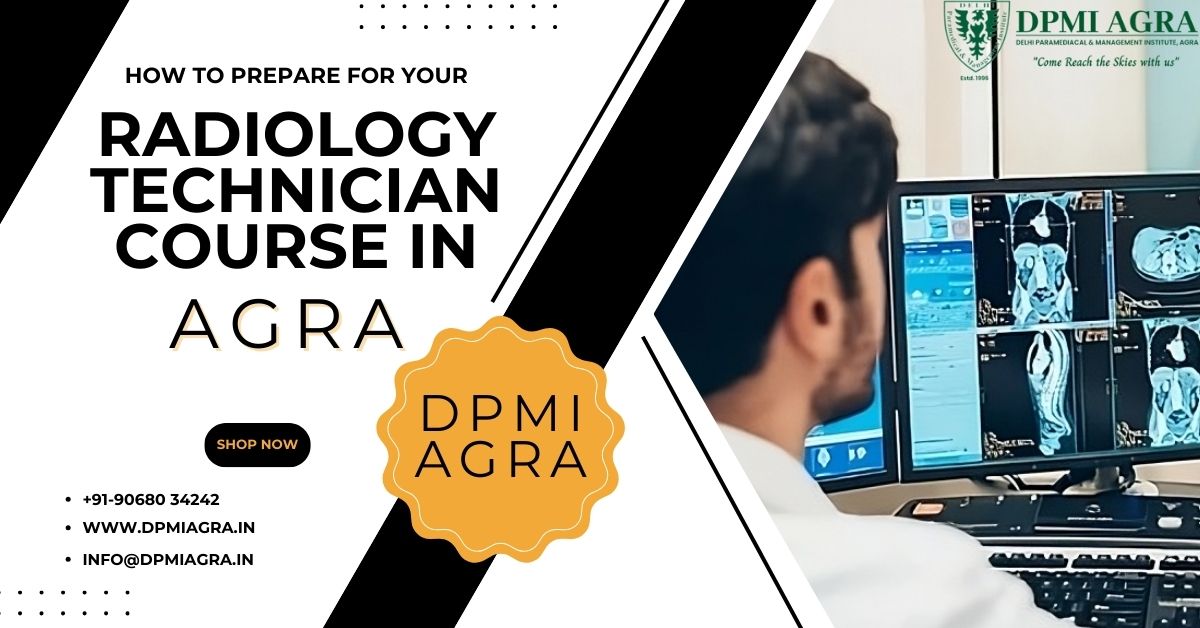From Classroom to Clinic: What You’ll Learn in An X-Ray Technician Course
Ever wondered who’s behind those clear medical images that help doctors make accurate diagnoses? That’s where X-ray technicians come in. These healthcare heroes are trained through specialized programs like the X-Ray Technician Course to master imaging technologies that play a crucial role in patient care. And if you’re based in Uttar Pradesh, DPMI AGRA offers one of the most reputed platforms to begin this journey.
Understanding the Role of an X-Ray Technician
Responsibilities in a Clinical Setting
X-ray technicians are not just button-pressers. They’re responsible for preparing patients, operating imaging equipment, and ensuring safety during procedures. They also work closely with doctors and nurses to interpret and manage results.
Daily Tasks and Professional Conduct
From patient preparation to image capturing and equipment maintenance, a technician’s day is diverse and fast-paced. Professionalism and ethical behavior are non-negotiables.
Overview of an X-Ray Technician Course
Core Curriculum Subjects
This course is structured to cover everything from anatomy to machine handling. Expect to dive deep into radiography, radiation physics, patient care, and ethics.
Theoretical and Practical Balance
The beauty of the X-Ray Technician Course is its perfect blend of theory and hands-on practice. You’ll learn in the classroom—and apply it in clinics.
Anatomy and Physiology
Understanding the Human Body: You’ll study how organs and bones function and how their structures appear on an X-ray. It’s like learning a new visual language.
Application in Medical Imaging: A solid grip on anatomy helps you understand what’s normal and what isn’t—making you better at spotting irregularities.
Radiographic Equipment and Safety
Learning to Operate X-Ray Machines: You’ll train on digital and analog imaging systems, mastering controls, calibration, and maintenance.
Importance of Radiation Protection: Safety is huge. You’ll learn to minimize radiation exposure to yourself and your patients using protective gear and techniques.
Patient Positioning Techniques
How to Get Clear and Useful Images: Correct angles, posture, and positioning make or break an image. You’ll master techniques to capture crystal-clear X-rays.
Ensuring Patient Comfort and Safety: It’s not just about images—it’s about people. Keeping patients calm and informed is part of your role.
Image Evaluation and Analysis
Identifying Normal vs. Abnormal Results: You’ll be trained to spot fractures, tumors, and other anomalies and highlight them for further diagnosis.
Reporting and Documentation Skills: Proper documentation and clear reporting are essential in a medical environment. You’ll learn how to do it right.
Clinical Internships and Practical Training
On-the-Job Learning: At DPMI AGRA, you’ll get real hospital exposure where you practice what you’ve learned in real-world scenarios.
Bridging Classroom Knowledge with Real-World Experience: Nothing beats hands-on learning—especially in a field as precise as radiography.
Soft Skills Development
Communication and Empathy with Patients: You’ll learn to explain procedures to patients, especially nervous or elderly ones, with care and empathy.
Working as Part of a Healthcare Team: Teamwork makes the dream work. You’ll collaborate with doctors, nurses, and lab techs daily.
Career Opportunities After the Course
Hospitals, Clinics, and Diagnostic Labs: After completing your X-Ray Technician Course, you can work in government hospitals, private diagnostic centers, and polyclinics.
Growth Prospects and Specialization Options: You can also specialize in CT, MRI, or move into teaching and supervisory roles as you gain experience.
Why Choose DPMI AGRA for Your X-Ray Technician Course
Experienced Faculty and Updated Curriculum: DPMI AGRA is known for its excellent faculty and modern labs that give you up-to-date training.
Placement Support and Real Hospital Exposure: With tie-ups with top hospitals, DPMI ensures you don’t just learn—you get placed.
Other Allied Health Courses at DPMI AGRA
Dialysis Technician Course In Agra: Learn to operate dialysis machines and care for kidney patients in a clinical setup.
Phlebotomy Technician Course In Agra: Get trained in blood collection, storage, and lab procedures—vital skills for modern labs.
Medical Lab Technology Course In Agra: From urine tests to histopathology, you’ll cover a wide range of lab work in this hands-on course.
Admission Process and Eligibility
Who Can Apply: Typically, students who have completed 10th or 12th grade (preferably with science) are eligible to apply.
Course Duration and Fees: The course duration usually ranges from 1 to 2 years depending on the level (diploma or certificate). DPMI AGRA offers affordable fees with installment options.
Conclusion
A career as an X-ray technician is rewarding, both professionally and personally. You’re at the heart of medical diagnostics, making a real difference in people’s lives. With the right training from institutes like DPMI AGRA, your journey from classroom to clinic will be smooth and empowering. Whether you’re aiming to join the X-Ray Technician Course, or explore other healthcare programs like the Dialysis Technician Course In Agra, Phlebotomy Technician Course In Agra or the Medical Lab Technology Course In Agra, DPMI offers the perfect launchpad.
FAQs
Q1: Is an X-Ray Technician Course difficult?
No, it’s designed to be beginner-friendly and is easy to follow with hands-on practice.
Q2: How much can I earn as an X-Ray Technician?
Entry-level salaries can range from ₹12,000 to ₹20,000 monthly, with experience bringing in higher packages.
Q3: Is practical training provided at DPMI AGRA?
Yes, DPMI offers real hospital internships as part of the course.
Q4: What is the scope after completing the course?
You can work in hospitals, diagnostic labs, or pursue further specialization.
Q5: Can I take other medical technician courses too?
Absolutely! DPMI also offers courses in dialysis, phlebotomy, and lab technology to expand your skillset.











